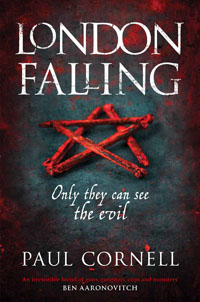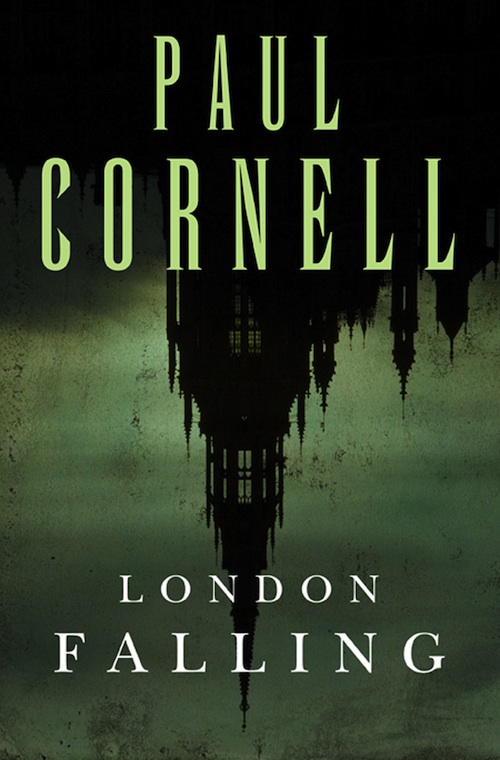This is a story about a straight line that got interrupted. It’s a story that feels especially apt to tell around Christmas, you see, it’s this season which first started me writing fiction. I wrote not very much at school, the bare minimum in response to essay prompts, just ticking the boxes. Until one day, in an expression of the pent up anger inside me, I came out with a ten page fictional rant that confronted my English teacher with the sort of stuff I was reading at home, which involved people and places at my school itself.
I expected it to result in me being expelled, but, to her credit, that teacher gave me top marks and encouraged me to do more, and from then on there was no stopping me. I’d found a way to let out something that would have hurt me had it stayed inside. (Thank you, Mrs Skipper.)
I’d started reading fanzines about Doctor Who and The X-Men, some of which carried fan fiction, and so I started writing Doctor Who stories, and getting them published, initially in a fanzine called Cygnus Alpha. (Thank you, Paul West.) That’s where the connection to this time of year comes in. It was during the winter holidays when I could really concentrate on writing. I remember sitting in my parents’ lounge with a mug of coffee, working on the A5 pads Dad brought home from his insurance firm, writing in my tiny capitals (because no editor could read my italics), letting story rush out of me, sometimes, especially at the end of some enormous plot, too fast for my hand to cope with.
We lived in the shadow of an Iron Age hill fort on the downs, and winter for us was truly winter, and then that shadow was really a shadow. I still feel that I wrote those stories under the influence of winter, to try and echo what that shadow did to me, or maybe to start a little fire to huddle around. My Mum always felt that the house had intruders coming in and out of it at night. “Her people,” she still calls them. (Thank you, Mum.) She never really sorted out whether or not these were real people, that is local kids who might steal logs, or something stranger. (“It’s not like I ever meet anyone in the hall at night,” she said to me the other evening.) So I think I started to write my stories as a sort of protective spell also, to try and feel secure by re-making the world to better suit me. I also wrote, around that time, highly fantastical accounts of the fun I was having with my friends at school, when actually I was utterly miserable, bullied to despair, free only when writing.
 One set of my fan fiction stories was printed in the fanzine Queen Bat. (Thank you, Jackie Marshall.) This series, “Total Eclipse” formed most of the plot of my first professional Doctor Who work, Timewyrm Revelation (for Virgin Books’ New Adventures range, thank you, Peter Darvill-Evans) and the greater series it was part of included characters from those rebellious essays I’d written at school. A later New Adventure, Human Nature, I eventually got to adapt for Doctor Who on television . (Thank you, Russell Davies.)
One set of my fan fiction stories was printed in the fanzine Queen Bat. (Thank you, Jackie Marshall.) This series, “Total Eclipse” formed most of the plot of my first professional Doctor Who work, Timewyrm Revelation (for Virgin Books’ New Adventures range, thank you, Peter Darvill-Evans) and the greater series it was part of included characters from those rebellious essays I’d written at school. A later New Adventure, Human Nature, I eventually got to adapt for Doctor Who on television . (Thank you, Russell Davies.)
So there’s that straight line, from school essays to Doctor Who, with me using one voice all the way, that changed only with experience. I sort of feel that’s how it was supposed to continue to go, that’s the story that my life was meant to tell, with the straight line carrying on from there.
But as my horizons broadened, as life got more complicated, I started to find writing jobs away from that axis, some of them great fun, and of which I’m very proud, mind you, in comics and television. And when I got back to novels, I somehow seemed to dream my way through two books that I now look back on as interesting but hugely flawed, and seem to be about second-guessing myself, and thus don’t use my own voice very much at all. (Your own damn fault, Paul.)
Which brings me to today, when I’ve just sprinted to the end of the sequel to London Falling, thinking of what came next too fast for my typing. I got to the point of writing the word “epilogues” as a heading and there I stopped for now, because, as those of you who know my prose of old understand, there’s still quite a little way to go. (“More epilogues than The Lord of the Rings” as someone once said.)
I feel like I’ve finally found a series of my own where I can write in my voice again and tell the stories I want to tell. These books have taken me back to that straight line that got interrupted. I can continue that now from here. I can continue that from having been a child to having fathered one.
So I think if you know my Doctor Who work, you’ll recognise a certain stormy emotional quality to these novels about DI Quill and his people, that thing of mine where I try and see if something romantic can be true in the face of something terrible.
The feeling I get from writing them is the feeling I get when I remember my parents’ house in the shadow of the downs, long ago in an English winter.
This article originally appeared on Tor UK.
Paul Cornell has written some of Doctor Who’s best-loved episodes for the BBC. He has also written a number of comics for Marvel and DC, including The X-Men and Batman & Robin. He has been Hugo Award-nominated for his work in TV, comics and prose, and won the BSFA Award for his short fiction. London Falling is his first urban fantasy novel.










